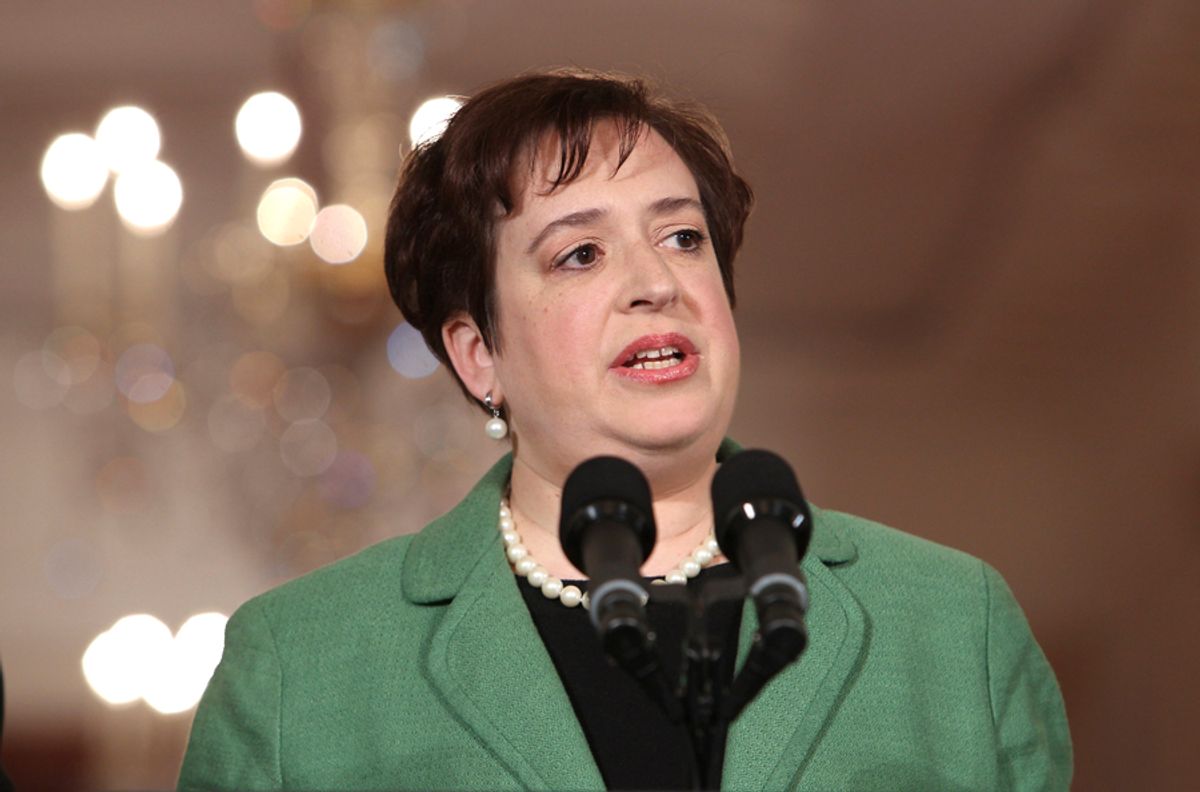Should Elena Kagan be required to disrobe, metaphorically, just because a gay blogger or a religious zealot demands that the Supreme Court nominee reveal whether she is or is not a lesbian? Their motives are utterly different, of course, but their method is the same, and it is just as deplorable that Kagan should be badgered about her private life from the left as from the right.
According to Andrew Sullivan, "it would be bizarre to argue that a Justice's sexual orientation will not in some way affect his or her judgment of the issue," although precisely how the orientation will affect the judgment he cannot tell us. But even if Sullivan's reasoning is weak, his frustration with the nominee's privacy is palpable as he repeats the rumors: "And yet we have been told by many that she is gay ... and no one will ask directly if this is true and no one in the administration will tell us definitively ... Did Obama even ask about it? Are we ever going to know one way or the other?"
No doubt Sullivan's agitation will prove quite useful to the right-wingers, whose own behavior is predictable. The chief aim of the American Family Association, the Family Research Council and all such kindred organizations is to separate rube wingnuts from their disposable political dollars before Kagan is confirmed, as she almost inevitably will be. In the worldview of the religious right, suspicions of sexual nonconformity can and must be raised against any unmarried woman of a certain age in public life (unless she happens to be Condoleezza Rice or Harriet Miers, about whom such rumors represented liberal character assassination).
By now, however, sexual hypocrisy on the right is so overwhelming and so baroque that it is difficult to stifle a laugh when Donald Wildmon warns against yet another "sexually abnormal individual in a position of important civic responsibility" or when Tony Perkins reaffirms that heterosexual "moral rectitude" is a central issue. Are you listening, David Vitter?
Although their ideologies diverge, Sullivan’s stated concern actually mirrors the worries of the wingers. Both believe that Kagan’s jurisprudence will be determined in some sense by her supposed sexual preference. But unlike so many other important issues where her views remain opaque, the nominee has actually spoken out more than once on gay and lesbian rights. She has indeed derided "don’t ask, don’t tell," denounced homophobia more generally -- and yet she has also declared that she finds no right to gay marriage in the Constitution.
By voicing a set of nuanced opinions, Kagan implicitly rebuts the cliché that her sexuality determines her worldview, a silly idea that Sullivan rejects when applied to him. The other side of the same cliché is to suggest that she would elevate the "homosexual agenda," as the far right would say, above constitutional values. She is a scholar and an advocate whose outlook is fundamentally progressive. We can anticipate that she will defend her views ably during her confirmation hearings. What she does or has done in private is irrelevant to those issues.
Outing a political figure is usually a tactic deployed against someone who has exploited homophobia for political gain. That was why gay activists flung open the doors of the overcrowded Republican closets from time to time, which certainly seemed fair enough. But if we have to ask Kagan whether she is a lesbian, where will the inquisition stop? Don't we now know, thanks to Jim McGreevey and Larry Craig among others, that an evidently straight married candidate may not be quite what he appears? Is every nominee and appointee going to be required to fill out a questionnaire about desire? Before we interrogate Kagan about her private life, we ought to find a better reason than the pride of Sullivan or the prejudice of Perkins.



Shares